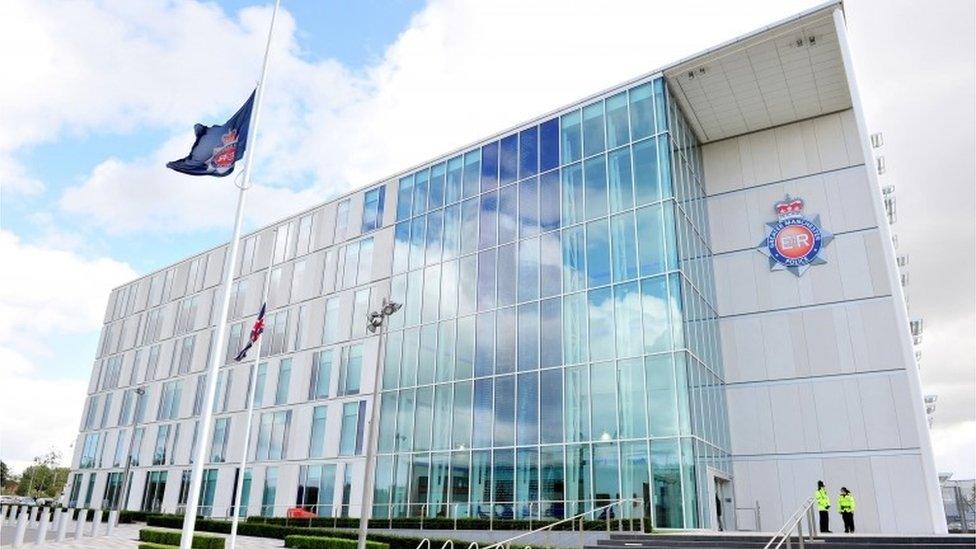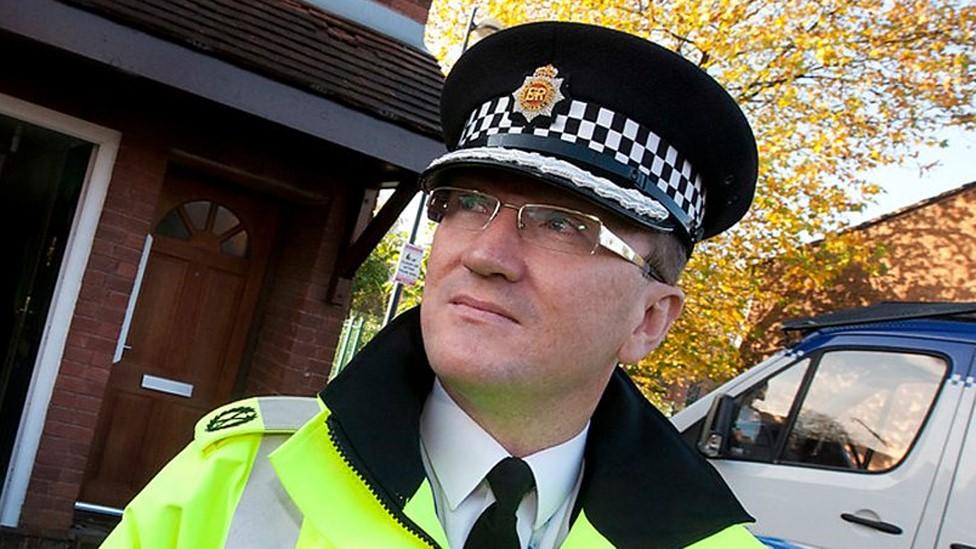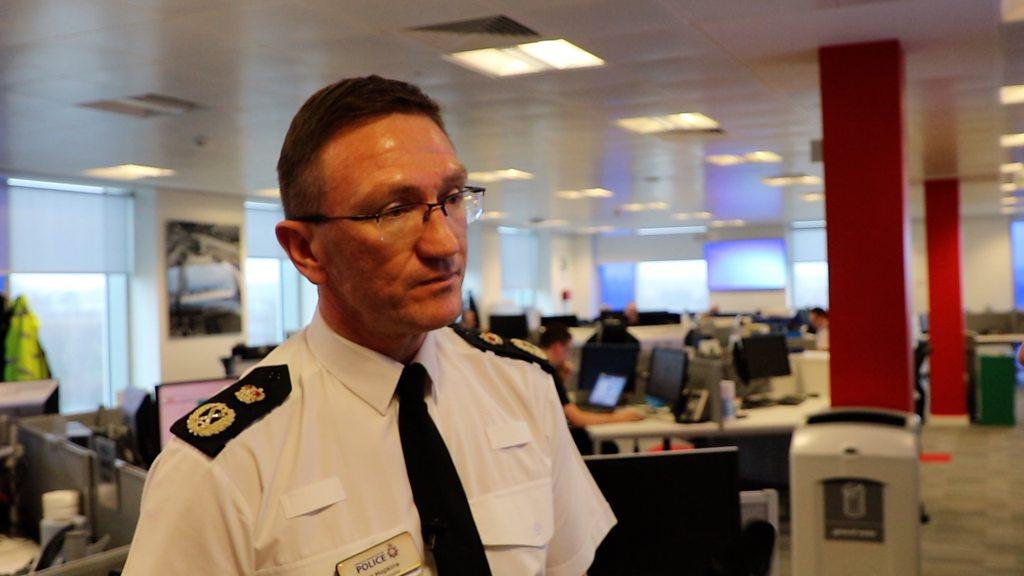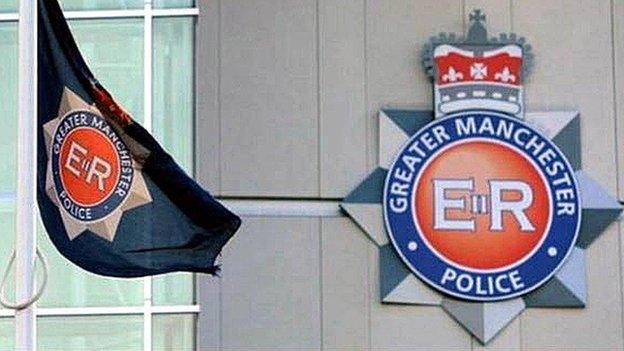Vulnerable put 'at risk' by Greater Manchester Police iOPS system
- Published
Officers had to revert to using pen and paper during a system upgrade
A troubled new computer system compromised the ability of Greater Manchester Police to assess those at risk, a report has found.
The £60m iOPS system was brought in to replace three systems which were critical to how the force functions.
But inspectors found it caused a delay in answering 999 calls, "serious" backlogs in dealing with abuse cases and a loss of staff confidence.
The chief constable said the report showed they were making improvements.
Her Majesty's Inspectorate of Constabulary (HMICFRS) was asked to review the recovery plan put in place by GMP to resolve the difficulties and backlogs created by the implementation of iOPS.
It was installed in July 2019, after being delayed by 16 months due to several technical problems which were "worse than anticipated" during the transition leading to "reduced force performance".
Officers had to revert to using pen and paper during a system upgrade at the start of February.

What is iOPS?
The Integrated Operational Policing System (iOPS) simultaneously replaced three ICT systems critical to how the force functions
The first logs calls from members of the public and tracks the deployment of officers.
The second and third were record management systems, containing intelligence, criminal investigations, custody records and files for court cases

The HMICFRS report found a backlog of cases including domestic abuse and child protection cases
Consequences of iOPS failure included:
Time to answer emergency 999 calls increased from 12 to 48 seconds. The national target is 10 seconds
A domestic abuse incident involving a sexual offender, the risk was not properly identified and graded as appropriate for telephone resolution
Seventy-four 'serious or complex' crimes involving vulnerable 10 victims not allocated
A domestic abuse victim linked to 100 domestic abuse incidents was not visible on the new system
HMICFRS recommendations include:
Review all domestic abuse and child protection incidents to ensure an appropriate response and referral made to the relevant agency
Review cases where victims of crime were not referred to ensure they receive appropriate support
All necessary data to be made searchable and accessible
Internal communications and full staff training improved

The HMICFRS report, external said staff were "motivated to do a good job with a real desire to keep people safe" but "remain frustrated" with a system that does not always return "accurate results".
It said training issues meant staff had "very little confidence" in a system they did not trust.
It also found a backlog of cases including domestic abuse and child protection cases.
This meant referrals to Greater Manchester Victims' Services were down by 87%, referrals for high-risk domestic abuse victims reduced by half and in one area, only 28% of child protection incidents were referred to children's social care between 12 and 31 July.

Chief Constable Ian Hopkins said the report showed the force was making improvements
Chief Constable Ian Hopkins told BBC Radio Manchester he asked for the independent review in August 2019 in a bid to be "transparent".
He said the old system was over 30 years old and "in danger of completely failing".
But the launch of iOPS in July last year caused "a real slowdown" of the system leading to "significant backlog".
He said non-immediate issues were being reviewed to check that there was no residual risk but insisted "the immediate stuff was dealt with as it should have been".
Mr Hopkins also admitted iOPS should have been delayed further until staff had been trained properly.
"There was never an ideal time to go live but because of the loss of confidence around the training I would revisit that," he added.
"I spent days on the front line, listening to my colleagues, and seeing and feeling their frustration because they all want to do a good job but they felt hindered."
HM Inspector of Constabulary Phil Gormley said: "It is clear some of the difficulties encountered were unavoidable.
"However, it is similarly clear there are significant lessons for the future."
- Published3 March 2020

- Published5 February 2020
